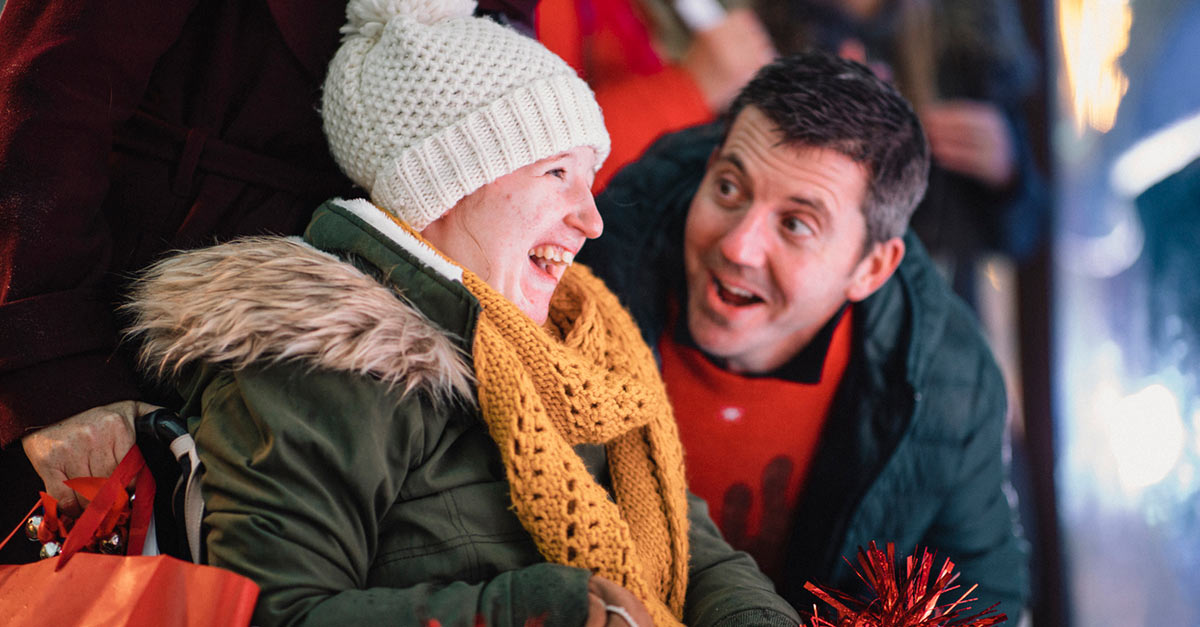Holiday Travel Tips for Kids With Cerebral Palsy

Over 130 million people are expected to travel to visit loved ones this holiday season, but traveling can be stressful, especially for the parents of children with cerebral palsy.
Careful planning can help things go smoothly, ensuring nothing your child needs is forgotten.
Here are some tips to help you prepare for holiday travel for your child with disabilities.
What to Pack in Your Child’s Travel Kit
Travel to-do lists can help you remember your child’s important items. However, knowing where to start can be overwhelming and stressful.
Give yourself enough time to make a list, and perhaps go through your child’s daily routine to see which items are essential and which you can do without.
Some things parents should have in their child’s travel kit include:
- Adaptive equipment: Bring all of your child’s adaptive equipment, especially the items they use daily. Make sure it is all tagged with your name and contact information in case it is lost during travel.
- Food: Include food and snacks, especially if your child is on a special diet or has a food allergy.
- Games and toys: Having things to occupy your child is essential for long travel days. Your child will feel more secure and less stressed with familiar items to play with.
- Hand wipes: You can use these to wipe down surfaces and your child’s hands to help kill germs and prevent them from getting sick.
- Medications: Make sure all prescriptions are filled to last for your entire trip and pack them safely. If any medications are injectable and you are flying, you will need to ask your child’s physician to write a letter for the Transportation Security Administration (TSA) explaining the need for the syringes or needles.
Getting started early on your child’s travel kit gives you and your child more time to pack necessities. It also makes it less likely that they'll forget something important.
Tips for Flying With Cerebral Palsy
Many families choose to fly to their holiday festivities. Parents traveling with children with cerebral palsy should contact their airline for special accommodations.
Most airlines will allow people with disabilities to board the plane before others and provide additional help throughout the airport.
Also, check with your airline about specialized equipment like motorized wheelchairs to see what additional steps will be needed when you arrive at the airport. Some U.S. airlines now have ways to track your checked baggage and equipment to make sure it gets on the plane and to your final destination.
To minimize the risk of damage to motorized wheelchairs and other equipment, practice folding up the wheelchair and removing any joysticks or headrests that could break off during transit. You may also want to bring along assembly and disassembly instructions.
Tips for Driving With Cerebral Palsy
Families traveling by car may need to plan for frequent stops. They should make sure that they give themselves enough extra time for safe traveling.
Extra time may be needed for:
- Feeding
- Medication administration
- Restroom breaks
It’s a good idea to look ahead and plan for scenarios that could occur while you are driving. Keep track of the weather along your drive, and be mindful of the nearest hospitals in case of an emergency.
To guarantee that your family has a safe trip, make sure that your child is secured safely in their seat. Some equipment like drink holders and trays can help make long car rides more comfortable for your child.
Get Help With Your Child’s Cerebral Palsy
Celebrating holidays with the ones we love is important, but traveling to get there can be stressful for those with disabilities. We hope these tips help ease some of the stress, so you can focus on what matters most this season — spending time with your family and loved ones.
Our team at Cerebral Palsy Guide wishes you all a happy, healthy, and safe holiday!
If you need additional help, our on-staff nurses are available to talk to you about your child’s cerebral palsy, treatment, and more. We may also be able to connect you with financial assistance if your child’s cerebral palsy was the result of an avoidable birth injury.
Call us at (855) 220-1101 to find out how we can help.
